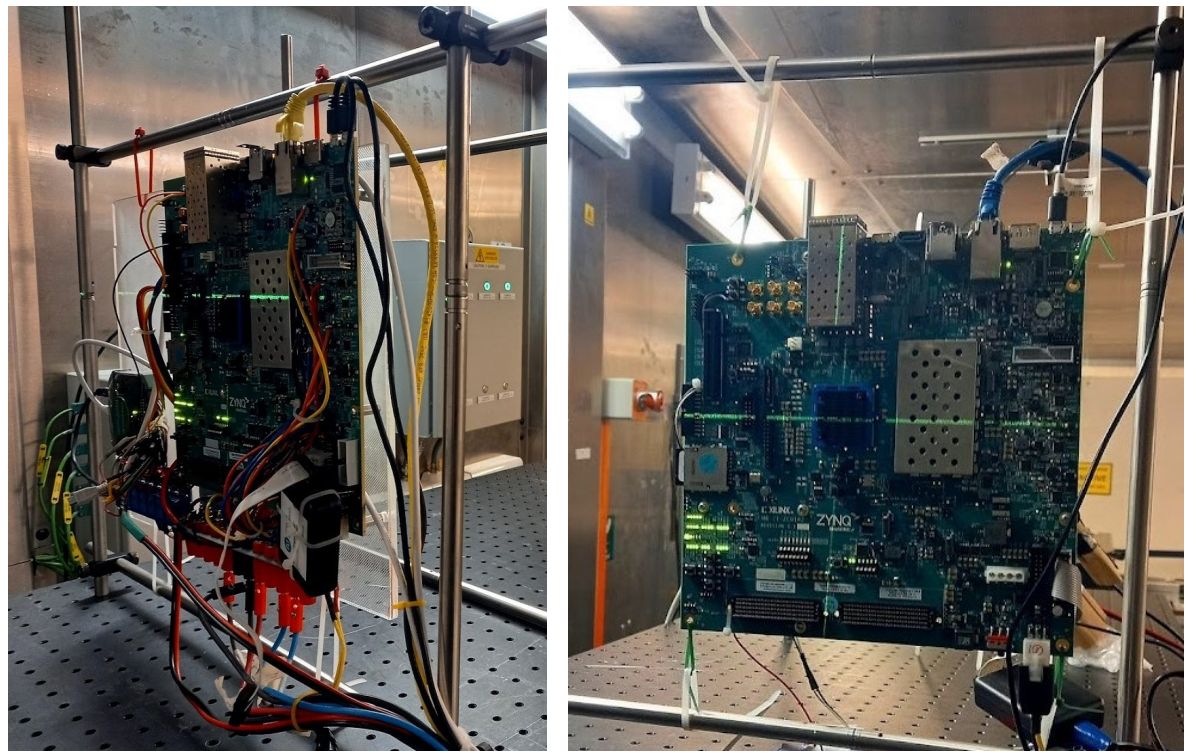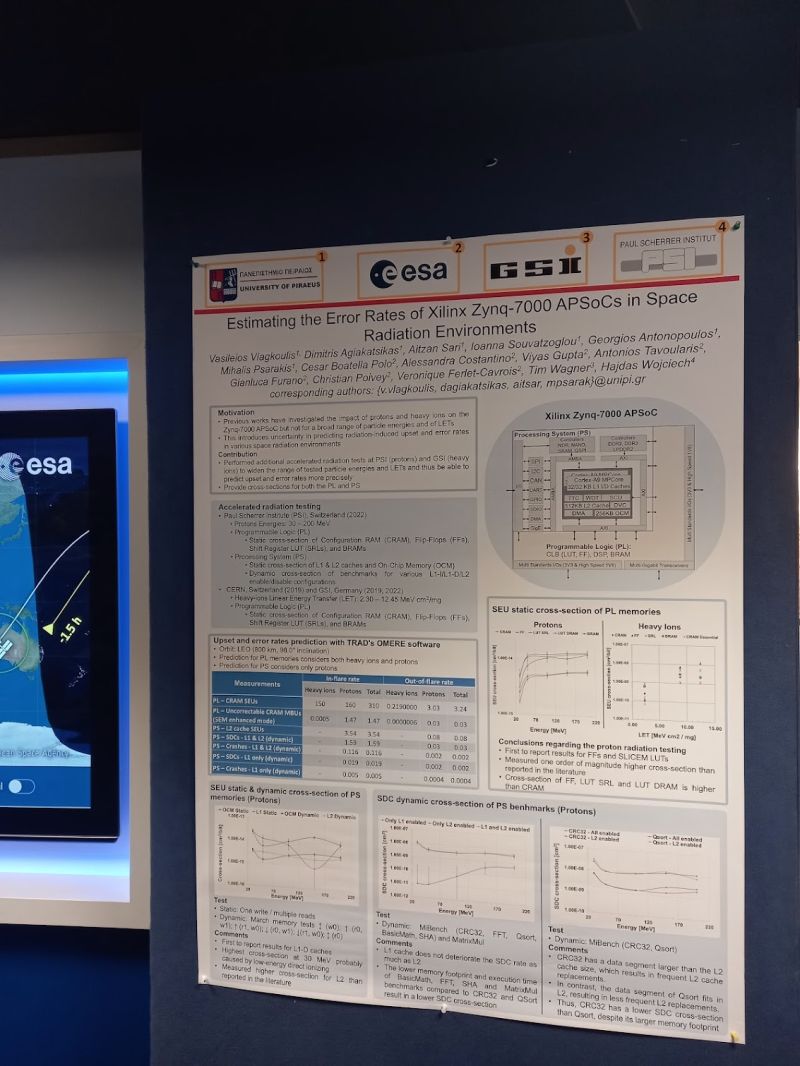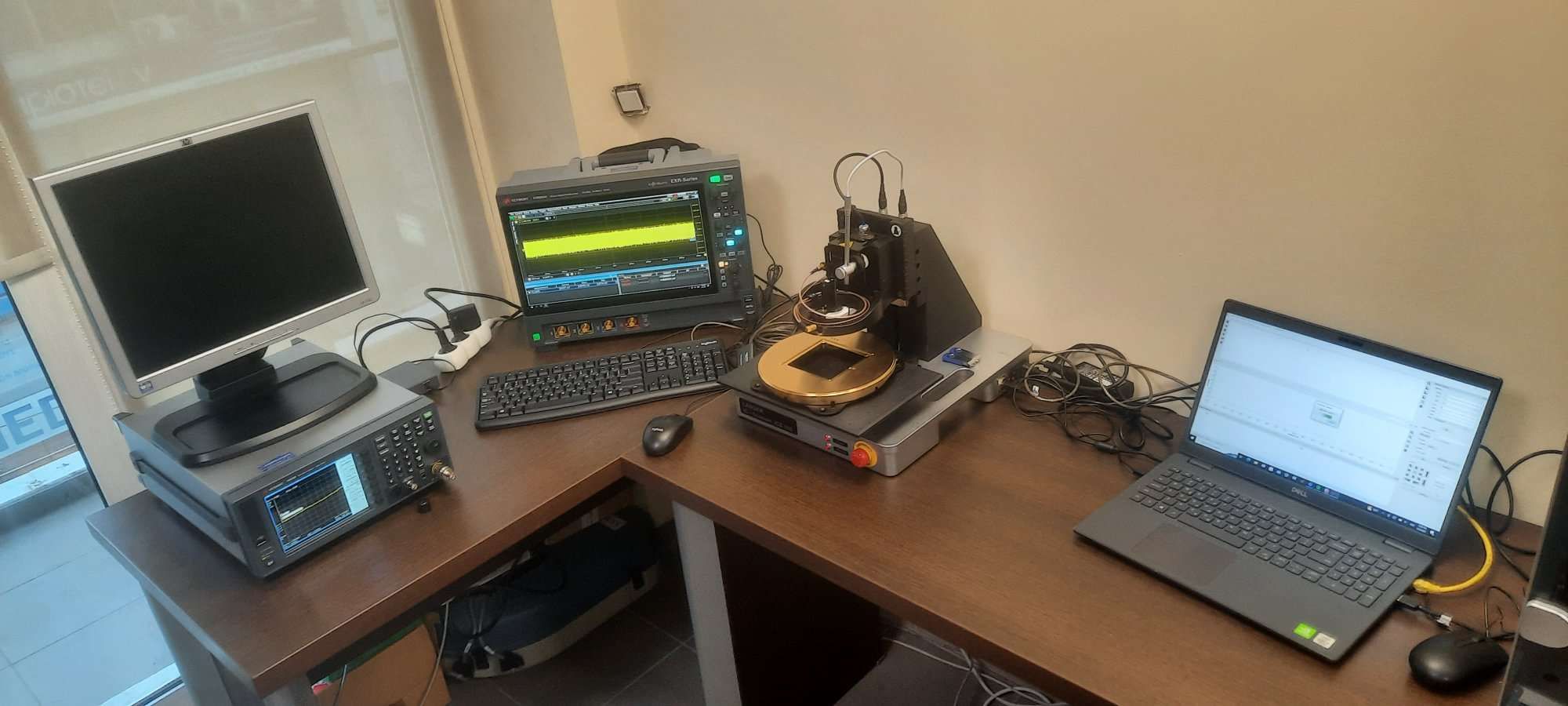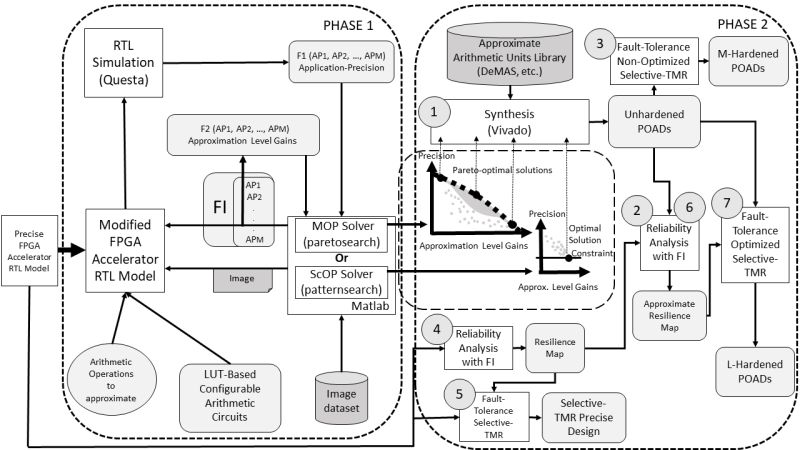 AMD incorporates soft error mitigation mechanisms in its UltraScale+ MPSoC devices to recover memory upsets (i.e., faults) before they propagate to the application output and become an error.
AMD incorporates soft error mitigation mechanisms in its UltraScale+ MPSoC devices to recover memory upsets (i.e., faults) before they propagate to the application output and become an error.
But how effective are these soft error mitigation mechanisms? Can they effectively recover upsets in high altitude or large scale applications under different workloads?
Our new work entitled “Single Event Effects Assessment of UltraScale+ MPSoC Systems under Atmospheric Radiation”
(https://lnkd.in/dQjqfDWg) answers the above research questions through a solid study that entails accelerated neutron radiation testing and dependability analysis.
We test the device on a broad range of workloads, like multi-threaded software used for pose estimation and weather prediction or a software/hardware (SW/HW) codesign image classification application running on the AMD Deep Learning Processing Unit (DPU)





 AMD incorporates soft error mitigation mechanisms in its UltraScale+ MPSoC devices to recover memory upsets (i.e., faults) before they propagate to the application output and become an error.
AMD incorporates soft error mitigation mechanisms in its UltraScale+ MPSoC devices to recover memory upsets (i.e., faults) before they propagate to the application output and become an error.

